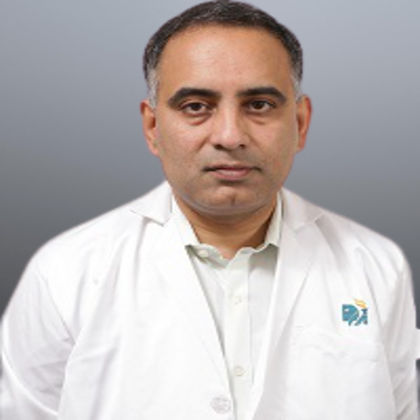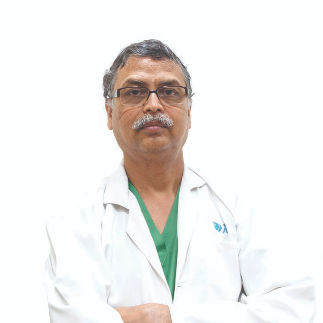Understanding Throat Cancer: Causes and Care
Learn about throat cancer, including its causes, symptoms, diagnosis, and treatment options. Discover prevention tips and when to seek medical help for better outcomes.


Throat cancer is a serious condition that affects the voice box, vocal cords, or other parts of the throat. While the diagnosis can be overwhelming, understanding its causes, symptoms, and treatment options can help you take the right steps toward better health.
What is Throat Cancer?
Throat cancer refers to the abnormal growth of cells in the throat (pharynx), voice box (larynx), or tonsils. These cancerous cells can spread if not detected and treated early.
Common Symptoms of Throat Cancer
Early detection is crucial for effective treatment. Look out for these warning signs:
Persistent sore throat that doesn’t improve with usual treatments.
Hoarseness or voice changes lasting more than a few weeks.
Difficulty swallowing (dysphagia) or pain while swallowing.
A lump or swelling in the neck.
Unexplained weight loss and fatigue.
Chronic cough (sometimes with blood).
Ear pain without an infection.
If you experience any of these symptoms for more than two weeks, consult a doctor.
What Causes Throat Cancer?
Several factors increase the risk of developing throat cancer:
1. Tobacco Use: Smoking cigarettes, cigars, or chewing tobacco is the leading cause.
2. Excessive Alcohol Consumption: Heavy drinking, especially when combined with smoking, raises the risk significantly.
3. HPV Infection: Certain strains of the human papillomavirus (HPV) are linked to throat cancer.
4. Poor Diet: A diet low in fruits and vegetables may contribute.
5. Acid Reflux (GERD): Chronic acid reflux can irritate the throat lining over time.
6. Exposure to Toxins: Asbestos, nickel, and other chemicals may increase risk.
How is Throat Cancer Diagnosed?
If your doctor suspects throat cancer, they may recommend:
Physical examination (checking for lumps or abnormalities).
Endoscopy or laryngoscopy (a small camera to view the throat).
Biopsy (taking a tissue sample for testing).
Imaging tests (CT scan, MRI, or PET scan to check for spread).
Early diagnosis improves treatment success, so don’t ignore persistent symptoms.
Treatment Options
Treatment depends on the cancer’s stage and location. Common approaches include:
Surgery: Removing tumours or affected lymph nodes.
Radiation Therapy: Using high-energy beams to kill cancer cells.
Chemotherapy: Drugs to destroy cancer cells or stop their growth.
Targeted Therapy & Immunotherapy: Advanced treatments to boost the immune system’s fight against cancer.
Consult Top Specialists
Your doctor will create a personalised plan based on your condition.
Lifestyle Changes for Prevention & Recovery
While not all cases are preventable, these steps can lower risk and support recovery:
1. Quit Smoking & Limit Alcohol
Seek help to quit smoking through counselling or nicotine replacement therapy.
Reduce alcohol intake to lower throat irritation.
2. Eat a Healthy Diet
Include fruits, vegetables, and whole grains rich in antioxidants.
Avoid processed foods and excessive spicy or acidic foods.
3. Stay Hydrated
Drink plenty of water to keep the throat moist and reduce irritation.
4. Protect Against HPV
Get vaccinated against HPV (recommended for both men and women).
Practice safe sex to reduce infection risks.
5. Manage Acid Reflux
Avoid late-night meals and spicy foods.
Elevate your head while sleeping to prevent acid reflux.
6. Regular Check-ups
If you have risk factors, regular screenings can help detect issues early.
When to See a Doctor?
If you notice persistent throat discomfort, voice changes, or unexplained symptoms, don’t delay medical advice. Early intervention can make a big difference in treatment outcomes.
Need Help? Book a Consultation Today!
If you or someone you know is experiencing symptoms or seeking information on throat cancer prevention, Apollo 24|7 offers access to expert consultations and diagnostic services. Schedule an appointment for accurate assessment and clinical guidance.
Conclusion
Throat cancer can be life-threatening, but early detection and the right treatment approach significantly improve outcomes. By recognising symptoms early and making lifestyle changes, you can reduce your risk and support recovery. Don’t wait! Prioritise your health and seek professional guidance when needed.
Consult Top Specialists
Consult Top Specialists

Dr. Gopal Kumar
Head, Neck and Thyroid Cancer Surgeon
15 Years • MBBS, MS , FARHNS ( Seoul, South Korea ), FGOLF ( MSKCC, New York )
Delhi
Apollo Hospitals Indraprastha, Delhi
(25+ Patients)

Dr. Ruquaya Ahmad Mir
Surgical Oncologist
20 Years • MBBS, DNB
Delhi
Apollo Hospitals Indraprastha, Delhi
(25+ Patients)

Dr Sunita Samleti
Oncologist
18 Years • M.D. (Pathology)- TN Medical College, Mumbai University, Mumbai, Mar 2005 M.B.B.S. Grant Medical College, Mumbai University, Mumbai, Oct 1999
Chinagadila
Apollo Hospitals Health City Unit, Chinagadila

Dr. Raja T
Oncologist
20 Years • MBBS; MD; DM
Chennai
Apollo Hospitals Greams Road, Chennai
(175+ Patients)

Dr. Praveen Kumar Garg
Surgical Oncologist
26 Years • MBBS, M.S.(Gen.Surg.), M.Ch.(OncoSurg.)
Delhi
Apollo Hospitals Indraprastha, Delhi
(50+ Patients)